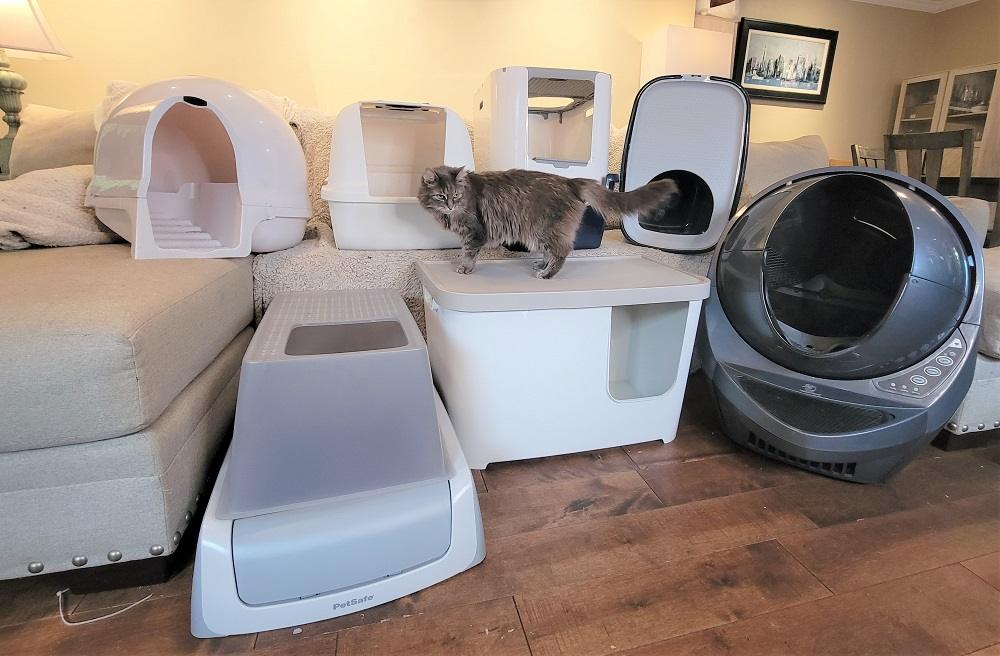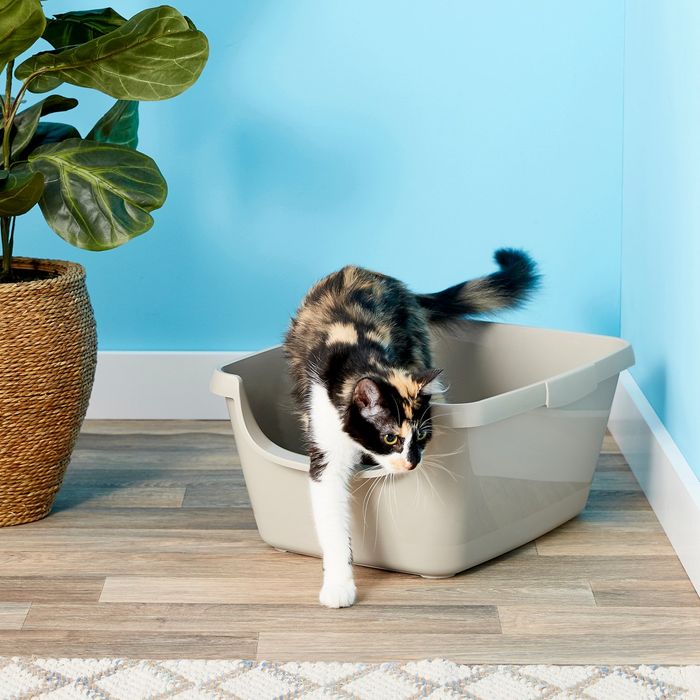Ultimate Guide To Litter Boxes For Cats: Everything You Need To Know
When it comes to creating a comfortable and hygienic environment for your feline friend, choosing the right litter box is essential. Litter boxes for cats are more than just a place for them to do their business; they play a crucial role in maintaining cleanliness and ensuring your cat's well-being. In this comprehensive guide, we will delve into everything you need to know about litter boxes for cats, from selecting the right type to maintaining it effectively.
Cats are naturally clean animals, and providing them with a well-maintained litter box can help prevent behavioral issues such as inappropriate elimination. Whether you're a first-time cat owner or looking to upgrade your current setup, understanding the nuances of litter boxes is vital. This guide will cover various types of litter boxes, tips for maintaining them, and much more.
Our aim is to provide you with authoritative and trustworthy information to help you make an informed decision. With the right knowledge, you can ensure that your cat's litter box experience is as pleasant as possible, leading to a happier and healthier pet.
Read also:Exploring Georgina Grint The Rising Star In Entertainment
Why Litter Boxes for Cats Matter
Cats have specific preferences when it comes to their litter boxes, and these preferences can significantly impact their behavior and well-being. A poorly maintained or inappropriate litter box can lead to stress, anxiety, and even medical issues in cats. Understanding why litter boxes matter is the first step toward creating a harmonious environment for your feline companion.
Research shows that inappropriate elimination is one of the leading causes of cats being surrendered to shelters. This behavior is often linked to dissatisfaction with the litter box setup. By choosing the right litter box and maintaining it properly, you can reduce the likelihood of such issues and strengthen the bond with your cat.
Key Factors to Consider
- Size and accessibility
- Type of litter box (open, closed, self-cleaning)
- Placement in the home
- Cleaning frequency
Types of Litter Boxes for Cats
There are several types of litter boxes available on the market, each catering to different needs and preferences. Understanding the differences between them can help you choose the best option for your cat.
Open Litter Boxes
Open litter boxes are the most common type and are ideal for cats who prefer a simple, accessible setup. They provide good ventilation and are easy to clean. However, they may not offer as much privacy as some cats prefer.
Closed Litter Boxes
Closed litter boxes feature a hood or cover, offering more privacy and reducing odors. These are great for cats who are shy or prefer a more enclosed space. However, they require regular cleaning to prevent odor buildup.
Self-Cleaning Litter Boxes
Self-cleaning litter boxes use technology to automate the cleaning process, making them convenient for busy pet owners. While they can save time, they may not be suitable for all cats, especially those who are wary of new technology.
Read also:Shania Twain Unveiling The Magic Of Up Red And Green Versions
Choosing the Right Size
The size of the litter box is crucial for ensuring your cat's comfort. A litter box that is too small can discourage your cat from using it, while one that is too large may be unnecessary. As a general rule, the litter box should be 1.5 times the length of your cat.
Tips for Selecting the Right Size
- Consider your cat's age and size
- Allow enough space for your cat to move around
- Choose a box that is easy to access
Placement of Litter Boxes for Cats
The location of the litter box can greatly affect your cat's willingness to use it. Cats prefer quiet, private spaces that are easily accessible. Avoid placing the litter box in high-traffic areas or near noisy appliances.
Ideal Placement Locations
- Quiet corners of the house
- Away from food and water bowls
- On the same level as your cat's living area
Maintaining Litter Boxes for Cats
Regular maintenance is key to keeping your cat's litter box clean and inviting. Cats are sensitive to odors and cleanliness, so neglecting this aspect can lead to behavioral issues. Aim to scoop the litter box at least once a day and perform a thorough cleaning weekly.
Steps for Effective Maintenance
- Scoop waste daily
- Change litter regularly
- Clean the box with mild soap and water
Common Issues and Solutions
Even with the best litter box setup, issues can arise. Understanding common problems and their solutions can help you address them quickly and effectively. Some common issues include litter box avoidance, odor problems, and litter tracking.
Addressing Litter Box Avoidance
- Ensure the box is clean and accessible
- Experiment with different litter types
- Consult a veterinarian if the issue persists
The Role of Litter Type
The type of litter you choose can also impact your cat's experience. There are various types of cat litter available, including clay, clumping, crystal, and natural options. Each has its own advantages and disadvantages, so it's important to find one that works for both you and your cat.
Popular Litter Types
- Clay litter: Economical and effective for odor control
- Clumping litter: Easy to scoop and convenient
- Crystal litter: Highly absorbent and odor-neutralizing
- Natural litter: Eco-friendly and biodegradable
Health Considerations
Keeping your cat's litter box clean is not only important for hygiene but also for their health. Cats can develop urinary tract issues if they avoid using a dirty litter box. Regular cleaning and monitoring can help prevent such problems.
Signs of Potential Health Issues
- Frequent trips to the litter box
- Straining to urinate or defecate
- Urinating or defecating outside the box
Conclusion
In conclusion, litter boxes for cats are a vital component of their daily lives. By choosing the right type, maintaining it properly, and considering your cat's preferences, you can create a comfortable and hygienic environment for your feline friend. Remember to address any issues promptly and consult a veterinarian if necessary.
We encourage you to share your thoughts and experiences in the comments section below. Have you tried any of the litter boxes or tips mentioned in this guide? Let us know! For more informative articles on pet care, explore our website and stay updated with the latest trends and advice.
Table of Contents
- Why Litter Boxes for Cats Matter
- Types of Litter Boxes for Cats
- Choosing the Right Size
- Placement of Litter Boxes for Cats
- Maintaining Litter Boxes for Cats
- Common Issues and Solutions
- The Role of Litter Type
- Health Considerations
- Conclusion
Data and insights for this article were sourced from reputable organizations such as the American Society for the Prevention of Cruelty to Animals (ASPCA) and the International Cat Care (iCatCare) to ensure accuracy and reliability.


